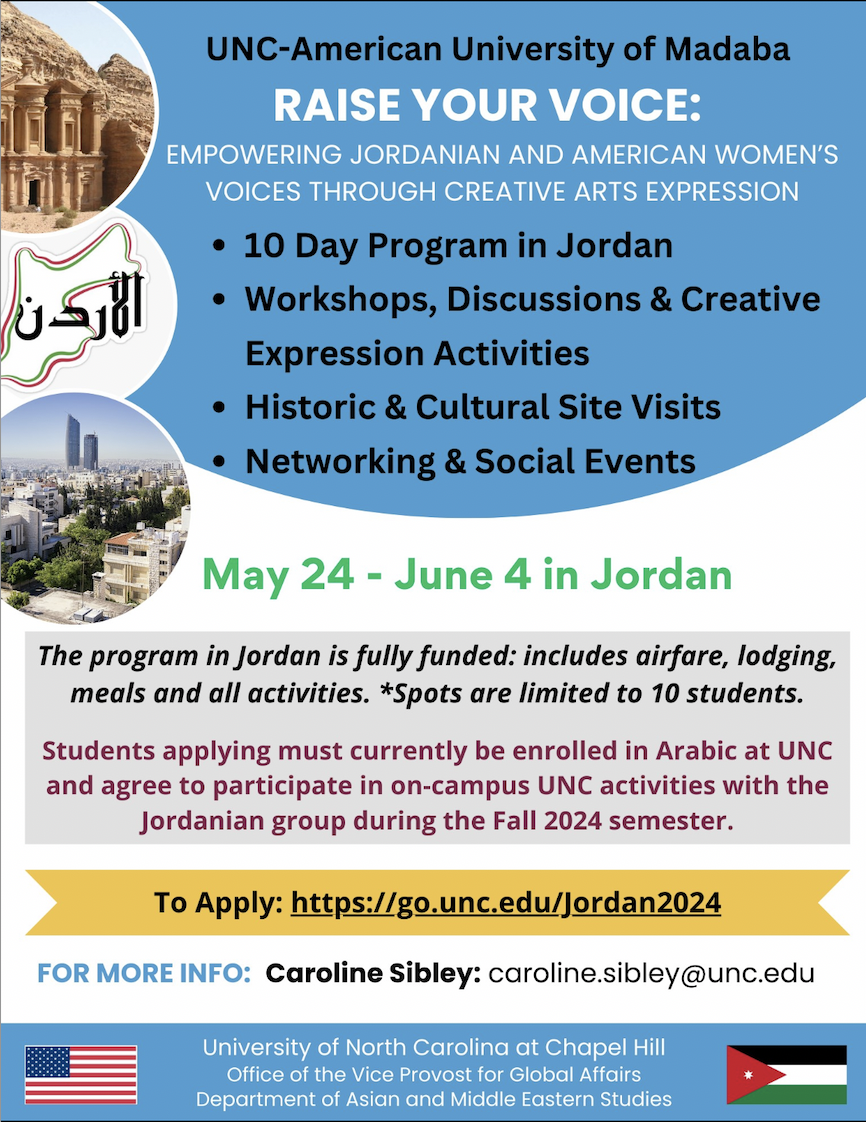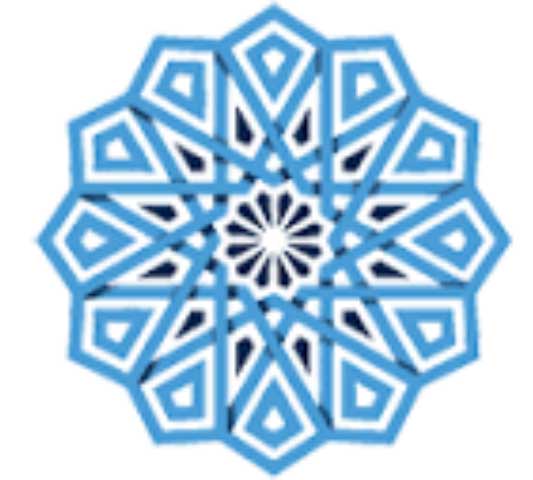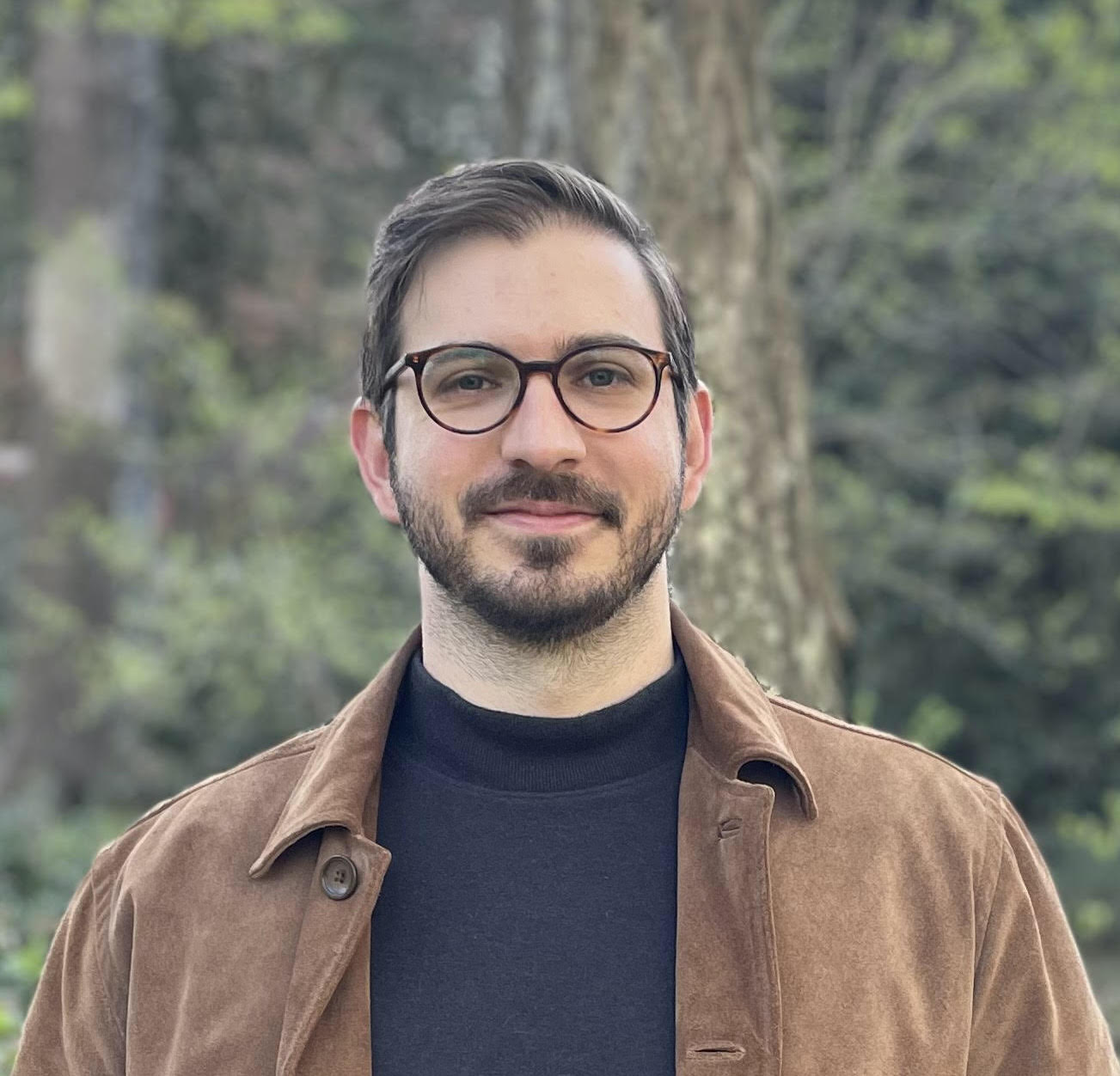
Claudia Yaghoobi is the new director of the Center for Middle East and Islamic Studies at UNC-Chapel Hill. (Photo by John Bechtold)
As the new director of the UNC-Chapel Hill Center for Middle East and Islamic Studies (CMEIS), Claudia Yaghoobi is eager to expand upon existing opportunities for students studying Middle Eastern and Persian studies, and to expand global partnerships with universities abroad.
Yaghoobi, a Roshan Institute Associate Professor, was appointed to her new role in April 2022 upon the retirement of Carl Ernst, CMEIS co-founder and co-director and professor of religious studies.
“Dr. Yaghoobi is a rising star in the field of Middle East cultural studies, and her fresh ideas and enthusiasm are reinvigorating the Center’s activities,” said Charles Kurzman, director of the North Carolina Consortium for Middle East Studies. CMEIS is a part of the Consortium, a collaboration between Duke University and the UNC-Chapel Hill.
CMEIS is more than an academic center for Yaghoobi. She wants students to know there is a community that is “both professionally and personally supporting them as a safe space that they can come to and socialize and also where they can share their research and receive feedback.”
This academic year, Yaghoobi launched the first CMEIS Annual Lecture Series, in which the Center invites proposals from faculty across campus to bring visitors, scholars, artist, experts and others to speak at Carolina. CMEIS will provide funding to support one proposal for a thematic lecture series with a minimum of four lectures for the 2022-23 academic year organized by one faculty member or a group faculty. These funds can be used to cover an honorarium, travel and lodging and meals for the speakers as well as other costs.
The Center will also host a monthly CMEIS social café in which Carolina students and faculty will share their work with Middle Eastern communities in the area. Yaghoobi views this meeting time as a “glocal” experience, both global and local.
Yaghoobi’s global research background informs the expertise she brings to her new role as CMEIS director. An Iranian-Armenian American, Yaghoobi’s research concerns the literature of the Middle East, specifically Persian and Armenian literature, and focuses on marginalized groups. Her upcoming book, Transnational Culture, examines the various creative ways that Iranian Armenian authors and artists, as members of religious and cultural minority populations of Iran and later in the diaspora in the U.S., craft and negotiate a unique notion of self, navigating the wish to integrate with mainstream society while maintaining ties with their homeland.
“I have no doubt Claudia Yaghoobi will be an outstanding leader for the Center,” said Rudi Colloredo-Mansfeld, senior associate dean for social sciences and global programs in the College of Arts and Sciences. “She is a well-respected scholar of Persian studies and recognizes the importance of the Center in contributing to our understanding of this complex region. I appreciate the efforts she has already made to build a sense of community among faculty and students at UNC.”
Since fall 2020, Yaghoobi has created connections for UNC-Chapel Hill students with classrooms in the Middle East through Collaborative Online International Learning (COIL). She received two grants from CMEIS and two curriculum development awards from the Office of the Vice Provost for Global Affairs to implement COIL in her courses.
Most recently, Yaghoobi added COIL to ASIA/PWAD 69 (Wars and Veterans: Iran, Iraq and Afghanistan), a first-year seminar taught in collaboration with a professor at Shiraz University in Iran.
Through the COIL course, Carolina students and their peers at Shiraz University gained perspectives about the tolls of war in Iran, Iraq and Afghanistan, through literature, film and photography. Yaghoobi found that COIL helped her students humanize people on both sides of conflict.
“In all my teaching, my first and foremost goal is to break stereotypes,” said Yaghoobi. “Students come to Middle East classes with all sorts of preconceived and stereotypical notions about the Middle East. These assignments equip students with an understanding that reading literature is more than just reading novels or poetry; it is also about our lived experiences.”
A recipient of the 2020 Carlyle Sitterson Award for Teaching First-Year Students, Yaghoobi utilizes a myriad of other tools to enhance global learning in the classroom. Beyond classroom assignments and discussion forums on Sakai, she tasks her students to make posters, podcasts, interviews or artwork to help them further connect with course material.
“Guiding students to connect what they learn inside the classroom to the world is a priority for me,” said Yaghoobi. “I look for ways to connect the text to our current world and show students how the readings can inform us about our present day across time and space.”
Yaghoobi seeks to provide holistic support for her students; not only does she want them to succeed academically, but also spiritually and emotionally. In 2021, The Well highlighted Yaghoobi among professors supporting students during the pandemic.
“Academia has this atmosphere of seeing just the brain and the mind. They forget about the body, the spirit, the soul and the emotions,” explained Yaghoobi. “For me, I bring my spirit and care to my classes so my students can feel safe to discuss their mental well-being with me.”
Rawan Abbasi ’20
Posted from UNC Global





